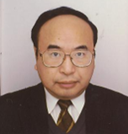Keynote Speaker

Prof. Nao-Aki Noda
Department of Mechanical Engineering,Kyushu Institute of Technology, Japan
Speech Title: How to Improve Both Fatigue Strength and Anti-Loosening of Bolt Nut Connections with Low Cost
Abstract: In this talk, how to improve both anti-loosening and fatigue strength with low cost is shown for bolt-nut connection. The authors’ previous study clarified that the most suitable pitch difference α=α1 for the fatigue strength is smaller than the most suitable pitch difference α=α2 for the anti-loosening. In this paper, toward improving both fatigue strength and anti-loosening, a larger nut height coupled with pitch difference is studied through experiment and FEM analysis. It is found that with increasing the nut height the suitable pitch difference for the anti-loosening α=α3 becomes smaller without changing the suitable pitch diffence for the fatiguge strength. In other words, a larger nut height with the pitch difference α=α3≈α1<α2 is suitable for improving both fatigue strength and anti-loosening.
Biography: “Material Strength” is an academic field to predict the strength of actual structures from test specimens. In this sense, Nao-Aki Noda and his group analyzed the stress concentration factors (SCFs) for notched test specimens and proposed the accurate SCF formulas in their papers and books “Theory of Fatigue Notch Strength Useful for Machine Design”. The formulas provide SCFs under arbitrary dimension of the notch including blunt and sharp notches and shallow and deep notches in the specimens. Regarding this achievement, he received JSMS Academic Contribution Award from Japan Soc, Material Science. To improve the durability of automobile bodies, zinc-coated steel sheets are used in large quantities. They are produced through continuous galvanizing lines (CGLs) in steel manufacturing industries. In a molten zinc bath in CGLs, stainless steel rolls are used under 480 degrees although corrosion and abrasion appear on the roll surface in a few weeks causing the deterioration of quality of plating. Considering those situations, all ceramics rolls were developed as an academic-industrial collaboration METI-funded project. In this project, Kyutech group studied the strength of shrink-fitted joint structure in the ceramic roll under mechanical and thermal loading. Since only small shrink-fitted ratio can be applied due to the ceramic brittleness, they clarified a new failure of the coming out of the shaft. Regarding this achievement, Nao-Aki Noda received and JSDE Best Paper Award from Japan Society for Design Engineering. Regarding the development of all ceramic roll, the academic-industrial collaboration group received Sokeizai Industry Technology award from Materials Process Technology Center Japan.
Nao-Aki Noda also studied several other joints. For example, bolt-nut connections can be regarded as the most important fastening elements. He has investigated special bolt-nut connections to improve both fatigue strength and anti-loosening with low cost. Supported by an academic-industrial collaboration METI-funded project, the group received Japan Society for Technology of Plasticity JSTP Best Paper Award. Since several Kyutech PhD students contribute to developing special bolt-nut connections, Nao-Aki Noda’s group received JSTP Education Award. Similar to bolt-nut connections, adhesively-bonded joints are also widely used. He found that most of the adhesive strength can be expressed as a constant value of ISSF, which is the intensity of the singular stress field. He clarified the ISSF under pull out test and microbond test used to estimate fiber bonded strength in fiber reinforced composites. He received JCOM Award for Scientific Papers from Japan Society of Materials Science for this achievement and JSME Materials & Mechanics Contribution Division Award from JSME for those academic-industrial collaborations. He lectured Mechanics of material for undergraduate course and Theory of Elasticity for graduated. He supervised more than 28 PhD students including 18 international students most of whom are supported by MEXT as well as more than 30 international master students most of whom are working in Japanese companies. He invited more than 25 international researchers to Kyushu Institute of Technology for collaboration. For contributing to the development of excellent international students and foreign researchers, he received the Commendation of Consulate-General of China in Fukuoka.
